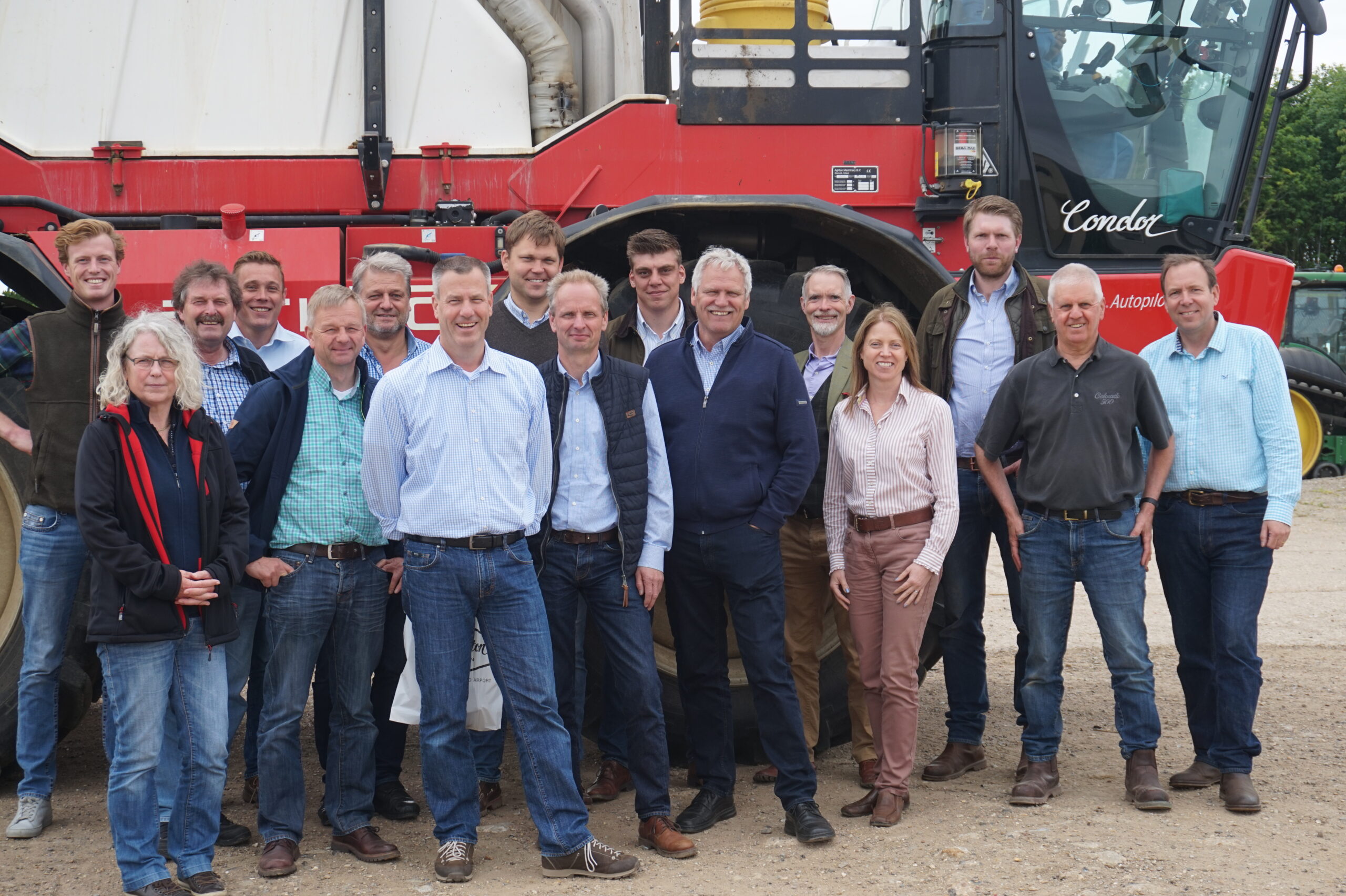A group of German arable farmers have come to the UK to look at the methods that UK growers are taking to control black-grass.
Organised by Ruth Stanley, UK technical manager for Life Scientific, the key message for the German visitors was that UK growers could no longer depend solely on chemistry to control difficult black-grass due to extensive resistance, so a range of cultural methodologies was now essential to ensure optimum herbicide efficiency.
“We are seeing black-grass resistance creep into our crops, and we know that if we don’t do anything about it we will face similar issues, so we have a lot to learn from UK farmers,“ explained Stefan Knittel, German country manager for Life Scientific, who accompanied the visitors.
The 10 arable farmers are from the Shleswig Holstein region of northern Germany where the climate is fairly similar to that of the UK.
“We are near the sea so its mild and warm in winter, and we have plenty of moisture combined with heavy soils – so ideal conditions for black-grass to flourish.”
“Rotations in the region tend to be one in four; the key focus is wheat and usually also includes oilseed rape and a barley or maize spring crop. “
“By having the spring crop, many growers are able to keep on top of the black-grass to a degree, but we need to do more and this is what we hope to take away from this trip.”
“We also don’t have the levels of resistance to chemistry that face UK growers, so we would not need to rely on glyphosate to the same level for desiccation or stale seed beds.”
A morning spent on the 5000 ha Thurlow Estate on Cambridgeshire/Suffolk border where there is a zero black-grass tolerance provided a good starting point for the tour.
A normal black-grass herbicide programme on wheat would include pre and peri-emergence herbicides in the autumn and then, where required, a spring herbicide application, pointed out farm manager, Jonathan Drury.
However, he added that cultural methods of control are key to ensuring optimum herbicide efficacy, pointing out the range of cultural measures taken to combat black-grass at Thurlow which include:
- Wide rotation of seven years to include spring cropping
- Ploughing one year in seven which buries the seed, all other cultivations are shallow geared towards reducing any unnecessary movement of soil
- Traffic light system to determine when a field can be drilled. If a field has no black-grass, it gets the green flag which means it can be drilled at the end of Sept. Amber – the field is drilled in October and Red means that drilling has to be delayed until the end of Oct/beginning of November
- All of the fields at Thurlow are mapped as black-grass heads start to emerge in early June and any patches over 4-5 heads/ metre are sprayed off.
The group also had a talk from leading black-grass expert, Dr Stephen Moss on the physiology of black-grass and methods for control, and spent some time with grower Russ McKenzie on how he manages black-grass on his farm.
The German farmers also visited an AHDB Monitor Farm belonging to Rob Fox in Leamington Spa. Here they were able to compare UK and German costs of production, which turned out to be broadly similar.
A morning spent at Great Tew Estate provided the chance to look at wheat and barley variety trials, both treated and untreated. They were very interested to hear that Azoxystar had been used twice in one of the programmes for the additional greening and plant health benefits.
A visit to the Hutchinsons Helix site provided a look at more strategic farm solutions, with particular interest in TerraMap, a non-invasive soil scanning service that has just been launched in the UK.
“The trip was really fascinating, and the positive spirit of the UK growers came across clearly. The growers took away a lot from UK farming, that can be used in Germany, such as the high levels of technical expertise around spraying and grain storage. It was also really interesting to see the ecological aspects of farming in the UK which differ from the biodiversity actions which are common practice in Germany,” explained Stefan.
“Overall, its been very impressive to hear the extent of practices that UK farmers go to in order to manage black-grass and the need for a long term sustainable yield an not a short term goal.”

